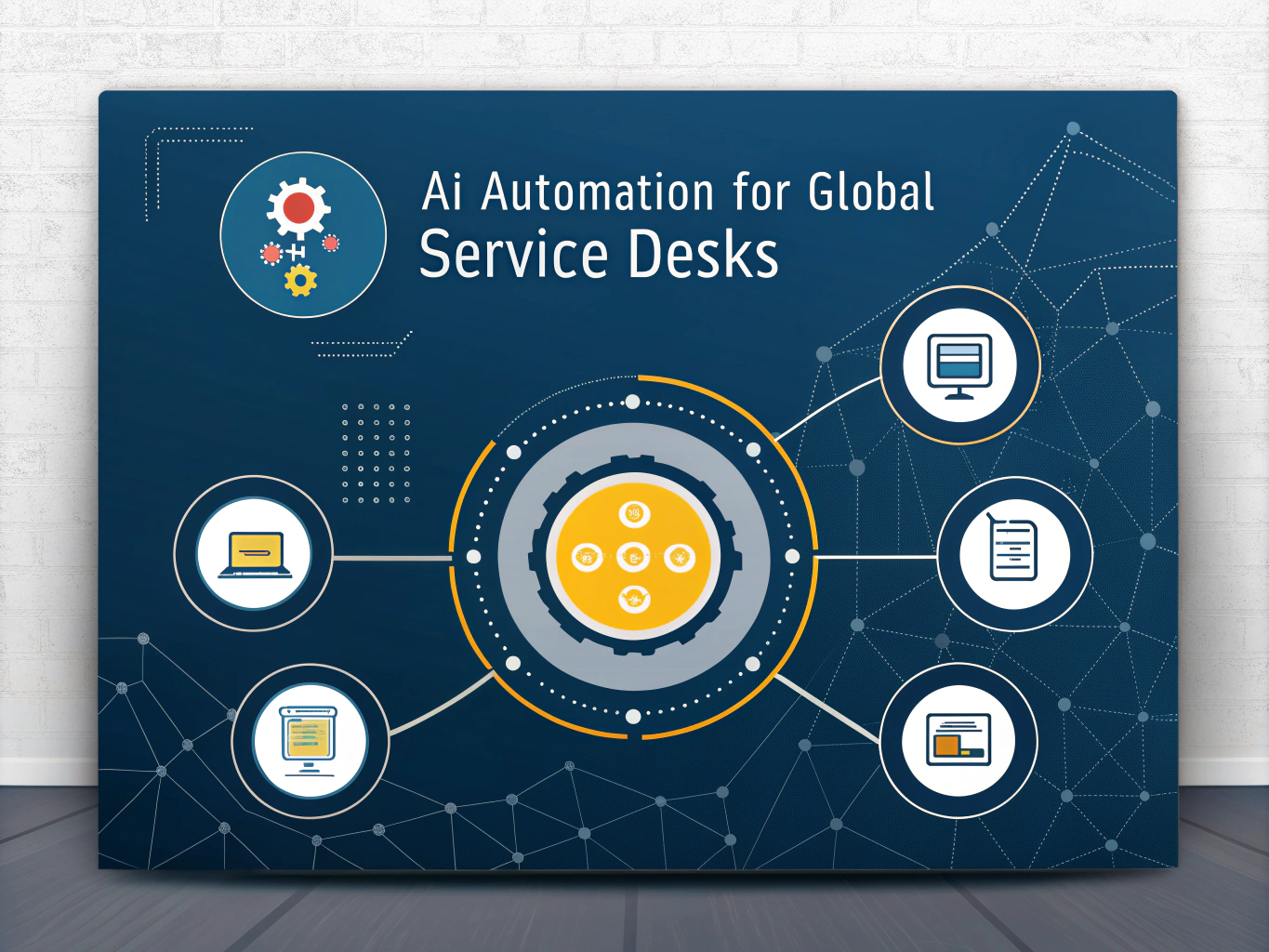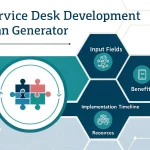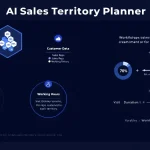AI Automation for Global Service Desk
Is this tool helpful?
How to Use the AI Automation Recommendations Generator Effectively
Follow these steps to get tailored AI automation recommendations for your global digital marketing service desk.
-
AI Tools and Technologies: Enter AI automation solutions relevant to your service desk. Examples:
- Voice recognition AI assistants, Automated sentiment analysis tools
- Deep learning-powered fraud detection systems, Chat-driven knowledge bases
-
Common Issue Types: Describe the frequent challenges your desk manages. Examples:
- Email campaign delivery failures, Social media content moderation requests
- Ad creative approval delays, Payment gateway errors
-
Current Workflow Description (Optional): Provide an overview of your workflow. For example:
- Clients submit tickets via a portal, which are automatically categorized before manual review by specialists.
- Support includes real-time chat escalation to senior agents during peak hours.
-
Supported Languages (Optional): List languages your team supports. Examples:
- Japanese, Italian, Russian
- Hindi, Dutch, Korean
-
Implementation Challenges (Optional): Describe obstacles to AI adoption. Examples:
- Legacy software integration complexity, Limited internal AI expertise
- Regulatory compliance with international data laws, Resistance from staff to new processes
- Generate Recommendations: After filling required and optional fields, click the generate button to receive customized AI automation insights for your global service desk.
What Is the AI Automation Recommendations Generator and Why Use It?
This tool analyzes your digital marketing service desk setup to offer actionable AI automation recommendations tailored to your unique environment. It helps you improve workflow efficiency, reduce client response times, and handle multilingual support across multiple markets.
By gathering information about your current tools, common issues, workflows, languages, and challenges, the generator provides practical guidance on which AI automation solutions fit your needs best. This enables your service desk to:
- Automate routine tasks to free human agents for complex issues
- Enhance response accuracy and speed through intelligent ticket routing
- Support clients worldwide with multilingual AI-powered communication
- Predict and prevent recurring problems by analyzing historical ticket data
- Address integration challenges early to ensure smooth AI adoption
Benefits of Using This Tool for Global Digital Marketing Service Desks
- Customized AI Guidance: The recommendations consider your specific workflow and market context.
- Broad AI Technology Coverage: Suggestions include chatbots, NLP tools, predictive analytics, and more.
- Improved Client Satisfaction: Faster resolutions and 24/7 multilingual support elevate service quality.
- Integration and Training Insights: Receive foresight on implementation hurdles and how to overcome them.
Practical Usage of the Tool for Digital Marketing Service Desks
Use this AI Automation Recommendations Generator to evaluate your current service desk and identify opportunities for AI-driven improvements. Here are some ways the tool supports your operations:
1. Managing High Ticket Volumes Efficiently
The tool recognizes that digital marketing teams face surges in support requests, especially during campaign rollouts. It may recommend deploying AI chatbots that address up to 75% of repetitive queries related to ad approvals or billing questions.
2. Enhancing First Response and Resolution Rates
You’ll receive suggestions for AI tools using natural language processing to understand client questions and suggest precise solutions. This leads to quicker first contact resolutions, improving client retention.
3. Supporting Multilingual Global Markets
For desks supporting diverse geographic regions, the tool proposes AI-powered translation systems integrated into your ticketing platform, enabling seamless communication across multiple languages without adding extra staff.
4. Predicting Issues Before They Impact Campaigns
The recommendations include predictive analytics models that analyze campaign data and ticket patterns to warn your team about potential problems before they escalate.
5. Automating Ticket Classification and Escalation
The generator advises implementing AI systems to automatically tag and route tickets based on content, urgency, and agent expertise. This accelerates resolution times and increases agent productivity.
Real-World Applications and Results
Use Case 1: Deploying AI Chatbots Across Multiple Time Zones
- Response times dropped from one hour to under three minutes
- 60% of routine questions handled without human support
- Client satisfaction ratings increased by 20%
Use Case 2: AI-Based Ticket Sorting and Routing
- Ticket assignment time shortened from 20 minutes to 15 seconds
- Misrouted tickets cut by 85%
- First-contact resolution improved by 30%
Use Case 3: Predictive Analytics for Campaign Issue Prevention
- Campaign interruptions reduced by 25%
- Proactive client communications increased by 45%
- Complex issue resolution times decreased by 35%
Use Case 4: AI-Driven Knowledge Management
- Solution search time decreased by 50%
- Agent consistency in resolutions improved by 70%
- New agent onboarding shortened by 30%
Use Case 5: AI-Powered Multilingual Support
- Support expanded to 25 languages without hiring extra staff
- Average reply times for non-English tickets dropped by 65%
- Client satisfaction in non-English speaking markets rose by 35%
Frequently Asked Questions About AI Automation for Service Desks
How does AI automation improve my service desk’s efficiency?
AI automation handles routine questions automatically, categorizes and routes tickets intelligently, and provides 24/7 support. This reduces the workload of human agents, speeding up response and resolution times.
Can AI automation work alongside my existing support team?
Yes, AI complements your team by managing repetitive tasks and supporting agents with timely information. This allows your staff to focus on complex issues requiring human judgment.
How does this tool customize recommendations for my global service desk?
By collecting details about your AI tools, common issues, workflows, supported languages, and implementation challenges, the tool delivers personalized advice that matches your service desk’s unique setup and market demands.
Important Disclaimer
The calculations, results, and content provided by our tools are not guaranteed to be accurate, complete, or reliable. Users are responsible for verifying and interpreting the results. Our content and tools may contain errors, biases, or inconsistencies. Do not enter personal data, sensitive information, or personally identifiable information in our web forms or tools. Such data entry violates our terms of service and may result in unauthorized disclosure to third parties. We reserve the right to save inputs and outputs from our tools for the purposes of error debugging, bias identification, and performance improvement. External companies providing AI models used in our tools may also save and process data in accordance with their own policies. By using our tools, you consent to this data collection and processing. We reserve the right to limit the usage of our tools based on current usability factors.







